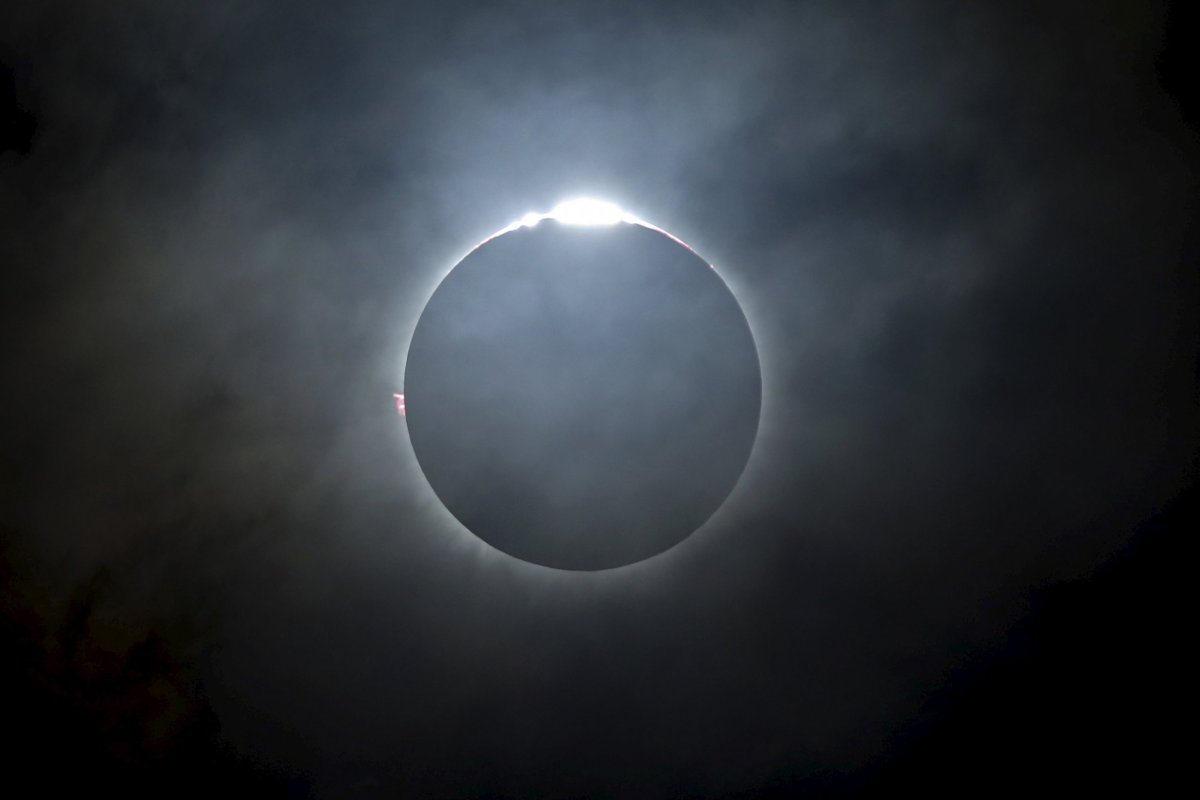Humans are fascinated by the total solar eclipse set to occur on Monday, August 21. And though they may not know it yet, animals are also expected to change their behavior in unusual ways during the eclipse.
The particulars vary widely by species: During previous eclipses, observers have seen "songbirds go quiet, large farm animals lie down, crickets start to chirp and chickens begin to roost," the Los Angeles Times reported last week.
In another strange incident, llamas were seen gathering together to watch an eclipse, which occurs when the moon moves between the sun and the Earth at exactly the right alignment to cause temporary darkness. The eclipse can also affect spiders, who have been known to begin dismantling their webs during the totality, a process that usually only occurs during night time. In fact, many animals react to the eclipse the same way they might react to the night—bats begin hunting, for example, and mosquitoes start biting.
Related: R.L. Stine glow-in-the-dark books will light readers' way during darkness
Why do animals behave so strangely during the eclipse? We posed the question to Dr. Joanna Chiu, a professor of Entomology and Nematology at the University of California, Davis, whose research focuses on animals' circadian clocks.

"In the language of 'circadian biologists,' there is a phenomenon called 'masking effect,'" Chiu tells Newsweek. "Masking simply means certain stimuli (e.g. the eclipse) can overrule the normal behavior temporarily without affecting the internal clock (daily physiological rhythms)."
In other words, Chiu says, "the eclipse (two-and-a-half minutes of darkness) should not alter the running of the clock and its output (e.g. sleep-wake cycle, feeding rhythms, hormonal rhythms, etc.) in humans and in other animals." But it will affect animals in other ways, both subtle and obvious.
"Some animals would be startled or curious and want to watch what they deemed to be a strange phenomenon (just like us humans)," Chiu says.
"Other animals that change their behavior more readily with changes in light conditions might mistake the eclipse to be night time, and start doing what they would normally do at night. What they do will depend on whether they are day-active or night-active animals. To summarize, it is not surprising that the eclipse will temporarily affect animal behavior, but it is unlikely to affect their internal circadian clock or their behavior in the long run."
Some organizations are asking people to record their observations of strange animal behavior during the eclipse. The Nashville Zoo, for instance, is handing out free protective glasses to guests and inviting them to record how they see animals behaving. The California Academy of Sciences is also asking people around the country to help record unusual animal and plant behavior using the iNaturalist app.
Don't expect to see any major changes in your pets, though. Animals that live indoors, in domestic environments, are much less likely to change their behavior due to the eclipse.
Uncommon Knowledge
Newsweek is committed to challenging conventional wisdom and finding connections in the search for common ground.
Newsweek is committed to challenging conventional wisdom and finding connections in the search for common ground.
About the writer
Zach Schonfeld is a senior writer for Newsweek, where he covers culture for the print magazine. Previously, he was an ... Read more
To read how Newsweek uses AI as a newsroom tool, Click here.








